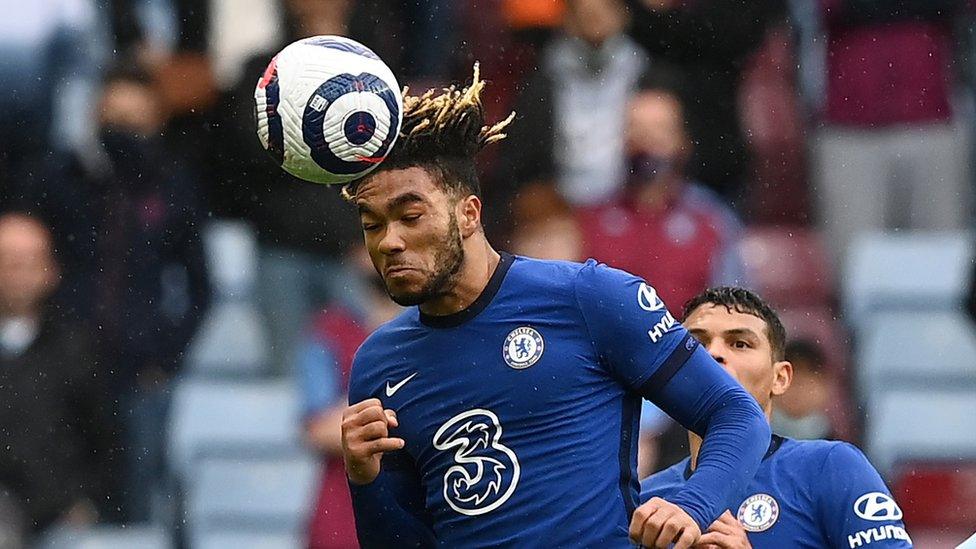Virtual reality: Research suggests it could improve our football skills
- Published
- comments
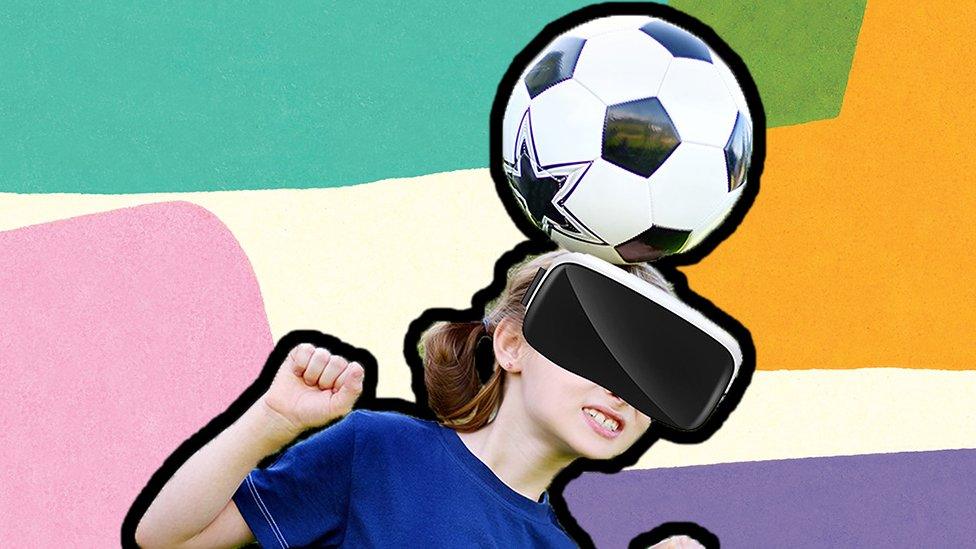
Could VR headsets make us better at headers?
Would you ever use virtual reality to help you improve at a sport?
Well, new research suggests footballers could start using the technology to improve their skills, whilst reducing impact on their heads.
By practicing over and over in a virtual football pitch, where you don't feel the impact of the ball on your head, players could get better at headers.
The study found that using virtual reality also left players feeling more confident in their football skills!
Training through technology
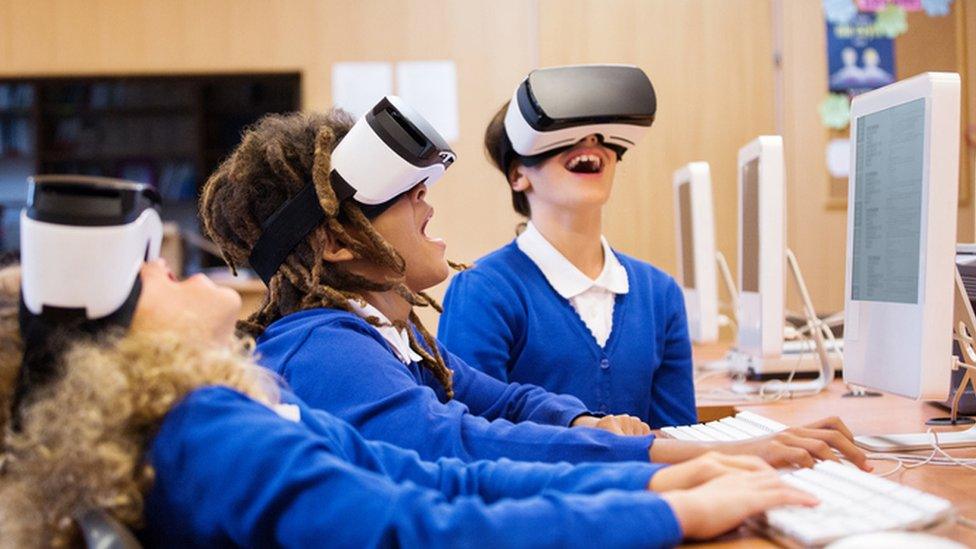
You might have only heard of virtual reality being used in gaming - but lots of different industries are starting to use it for research and training
Researchers at the Manchester Metropolitan University split participants into two groups - one to practice with VR, and one to not practice.
When it came to the real-life games, the team who had practiced in virtual reality performed better, and also felt more confident.
The University hopes the study can show some of the benefits of using virtual reality, and reduce the risk of injury when playing sport.
If a player is hit on the head lots of times with the ball, they could risk injury, so practicing headers over and over in real life might not be safe. This is why there are rules in place around headers for children.
The FA currently advises against header training for under-12s.
For 12-13 year olds, they're meant to only have a single session of four or five headers, and there are still rules in place for some older teenagers as well.
Adults are meant to only practice 10 high-impact headers per week in training.
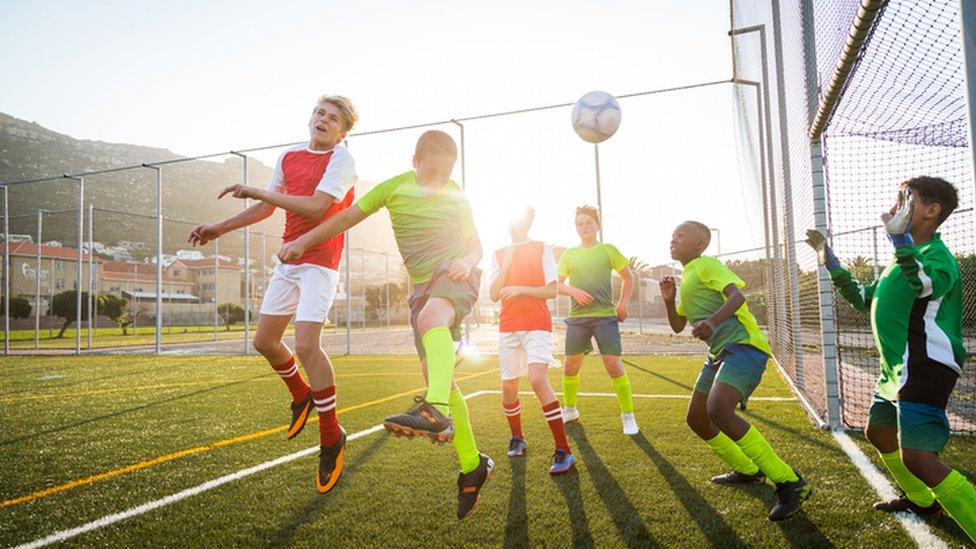
The researchers wanted to see if virtual reality could be used to replace some in-person header training, especially with the FA limits on header training in amateur football.
Overall, the study proved that having some VR training is better than no training at all.
Our findings show that virtual reality (VR) based training can be used to improve real-world heading performance
What do you think - would you ever use VR to help you train? Let us know in the comments at the bottom of the page.
- Published18 July 2022
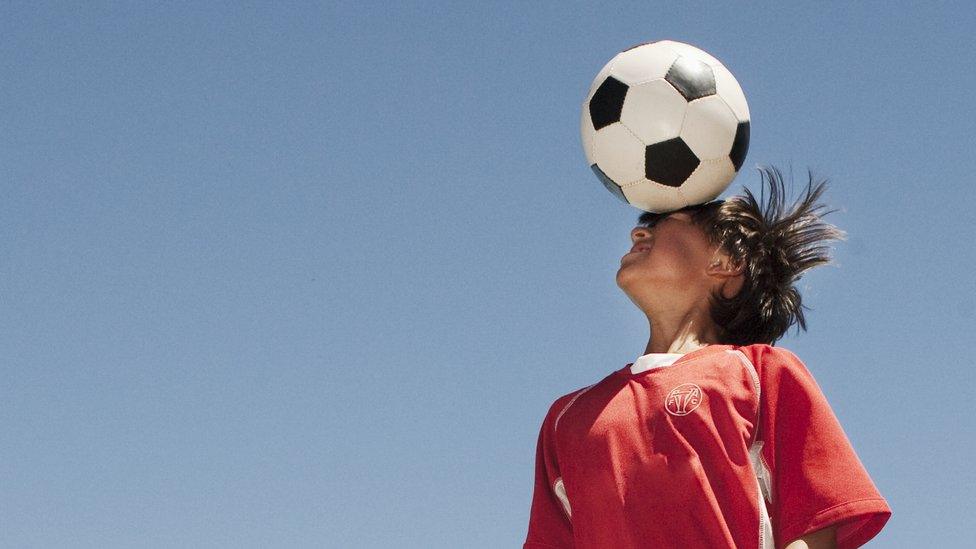
- Published29 July 2021
